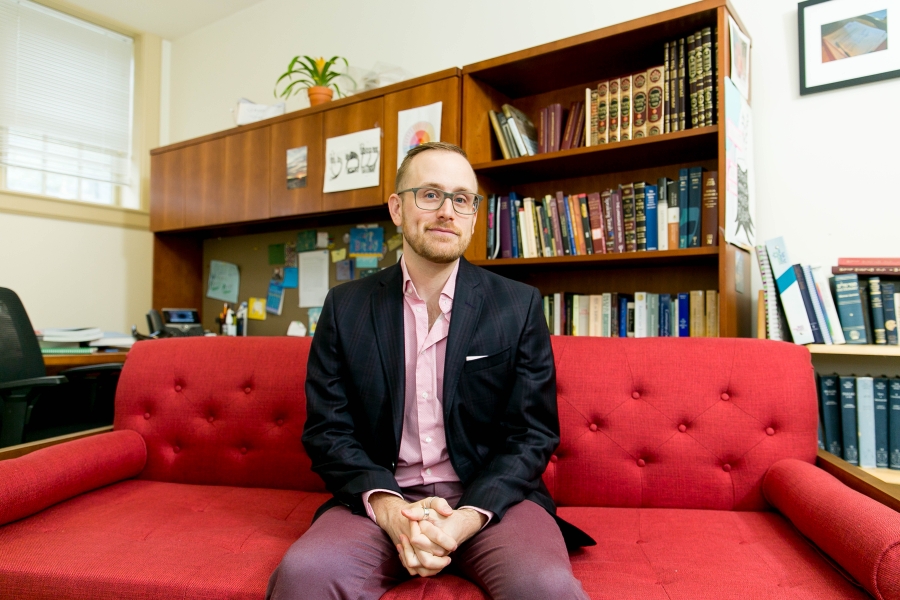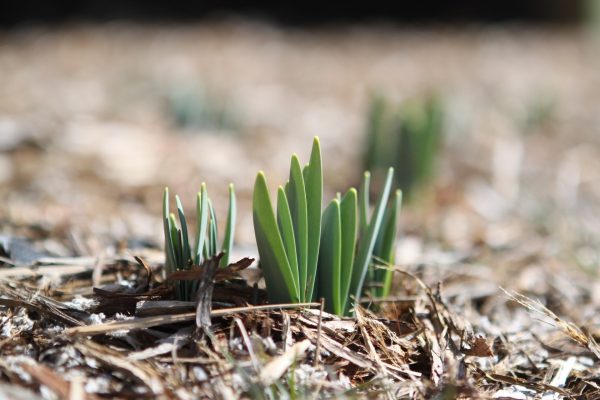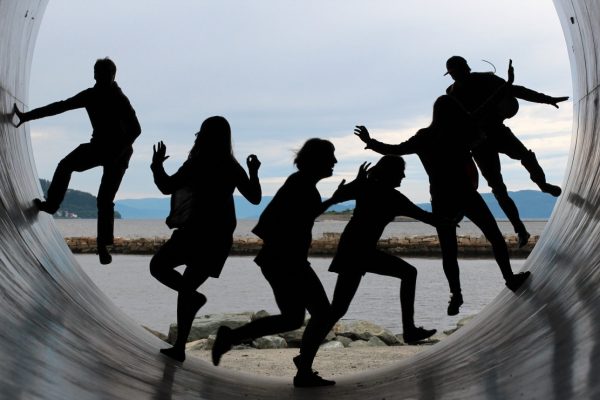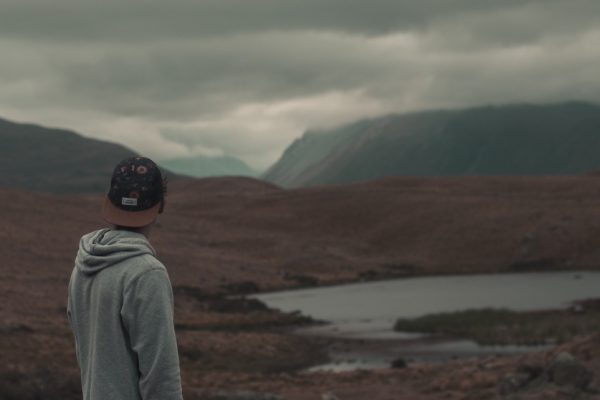Transcript: We are in a moment of terror.
What we have known is now unknown. The future is uncertain and precarious. The present seems dangerous and chaotic. Hate rises up around us. Flight. Fight. Freeze. Who can you trust? Who are your partners? What is the way through?
Behind you are those who have enslaved and oppressed your family for generations, reneging on the deal that let you go free.
Before you, the salty sea, deep, dangerous, overwhelming.
All around you, your family, your friends, your neighbors, your collaborators, strangers, Egyptians who have fled tyranny with you, hoping for liberation, for redemption. Panicking. Screaming. Wailing. Clawing. Weeping.
The mixed multitude you stand in starts to move. Trying to flee without a place to turn. You lose sight of those you marched with, you lose sight of where you came from, you lose sight of where you’re going. Something. You must do something.
Some people around you grab weapons. Some just stop and stare at your oppressors.
Others turn to the sea, fathoming its depth.
The panic subsides and despair sets in.
You decide to sit down, knowing death is all around you. Others sit down by you, losing hope. The chariots are approaching. The sea is still waving.
Hearts break. Tears fall.
This is the end. You know it.
One man, you think you’ve seen him before, an average man by the name of Nachshon. He takes a step into the water. Away from the chariots and swords and into the rushing, salty, tide. He takes another step, and another, the water reaching his ankles, his waste. Suddenly, people start to follow him. There are a dozen people walking in the water. Their light desert clothes plastered to their bodies. Their few belongings clutched tightly to their chests. The water is now at their necks.
You look on incredulously. You turn around, seeing the chariots rushing closer. There is no looking back now. You feel the hot desert sand burning your uncovered feet.
You decide to go with them. There is no hope behind you. There is no hope in staying in place. There is only forward. Only forward. You grab a friend’s hand and take a step. And another. Soon, everyone around you is in the water and all you can see of Nachshon, the man that took the first step, is the very top of his head. The rest is submerged in water, but still he marches on.
The water is at your chest.
You think of the harsh labor you have been forced to do. You think of those who did not make it this far. You think: this is surely the end.
And suddenly, the flow of the water before you opens. The waters split, flying to either side. There is a muddy, desert path before you. Nachshon and those in the front sputter water and gasp for air.
Everything stops. The shock of the miracle, the awe, the gratitude, the fear–a moment of pure and absolute stillness.
The pause is brief. You cannot stop to marvel yet.
The crowd marches on joyfully, fearfully. An old woman before you reaches her hand into the wall of water that is on her left, hardly believing the sight. As she pulls her hand out, it comes with a pomegranate. A ripe, red, beautiful pomegranate. A smile comes over her face and you can’t help but smile with her.
Inspired, you reach into the wall of water as well and pull out a pomegranate. Everyone has a pomegranate. Sustenance is all around you. You do not have to live on matzah alone. Pomegranates. Sweet, juicy, messy pomegranates are around you if you look in unexpected places.
With pomegranate juice running down your chin and through your fingers, you march on. Through the mud, surrounded by a masses of people seeking freedom.
The chariots reach the mud and you quicken your pace. This mixed multitude you are in is most of the way to the other side.
Rushing, panting, sweating, you make it through. You can hardly believe it. What just happened? Was it real? A dream? The waters, suddenly as they parted, fall onto the oppressors. Others turn away from the sight, but you look on. Your heart breaks to see more death, more suffering. You wish there had been another way.
A moment of silence. Your people feel the undercurrent of joy in their freedom, but take a moment to acknowledge the death of their pursuers.
And then you hear a woman’s voice. It’s your friend Miriam. She starts a song of praise and gratitude. She and many of the women have drums with them and start a circle dance!
Drums?! You think to yourself. Who would have brought drums with them into the wilderness?! You are incredulous. Judgmental. You are practical, your brought food and clothes and tools.
Then you realize the wisdom of these women. They knew we would be free. They knew we would need to celebrate. They brought drums because joy, music, and dance are not luxuries. They are are essential. We need them like we need food, clothes, and tools.
You are grateful these women brought their drums.
You join in. You rejoice. You sing. You dance.You are awestruck by the celebration. You are awestruck by your community. You are awestruck by the miracle. You feel the pomegranate juice, now dried and sticky on your chin. Nothing could feel better.
You are free.
 Rabbi Alex Weissman was ordained by the Reconstructionist Rabbinical College in 2017, where we studied Torah and served a range of communities including POWER, Avodah, Congregation Beit Simchat Torah, and JOIN for Justice. Alex currently serves as the Rabbinic Organizer at T’ruah: The Rabbinic Call for Human Rights and as the Rabbi at Congregation Agudas Achim in Attleboro, MA. Alex previously served as the Senior Jewish Educator at Brown RISD Hillel for three years and as a Community Care Chaplain with the Faith Matters Network. He serves on the Ethics Committee of the Reconstructionist Rabbinical Association and on the advisory boards of Evolve: Groundbreak Jewish Conversations and the Inside Out Wisdom and Action Project. Alex lives in Providence, RI with his partner, Adam.
Rabbi Alex Weissman was ordained by the Reconstructionist Rabbinical College in 2017, where we studied Torah and served a range of communities including POWER, Avodah, Congregation Beit Simchat Torah, and JOIN for Justice. Alex currently serves as the Rabbinic Organizer at T’ruah: The Rabbinic Call for Human Rights and as the Rabbi at Congregation Agudas Achim in Attleboro, MA. Alex previously served as the Senior Jewish Educator at Brown RISD Hillel for three years and as a Community Care Chaplain with the Faith Matters Network. He serves on the Ethics Committee of the Reconstructionist Rabbinical Association and on the advisory boards of Evolve: Groundbreak Jewish Conversations and the Inside Out Wisdom and Action Project. Alex lives in Providence, RI with his partner, Adam.











